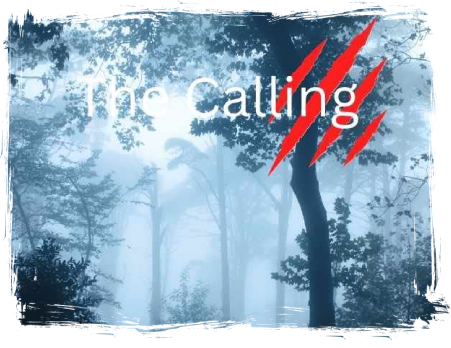As someone who has been devouring horror fiction for decades, I’ve grown accustomed to dealing with fear. Whether it’s ghosts, serial killers, or Lovecraftian entities, I pride myself on maintaining a level head when things get dark and disturbing on the page. That composure was pushed to its absolute limits by Darren Youngson’s latest novel “The Calling”. This book burrowed its way under my skin in a manner few horror stories have managed. Even now, weeks after reading the final page, that feeling of dread has yet to subside fully.
An Exercise in Slow-Burning Terror
From the outset, “The Calling” operates like a slow tightening of the vise around your mind. Youngson takes his time immersing you in the utterly ordinary and mundane life of Harold Bradshaw, a middle-aged insurance broker living in an unremarkable London flat. You’re lulled into a sense of banal complacency as Harold goes about his daily routines – riding the bus to work, filing claims, drinking his evenings at the local pub.
This familiarity makes the story’s gradual descent into cosmic horror so exquisitely, maddeningly effective. One day, Harold has a bizarre encounter on the street that unhinges his grip on reality. An unshakable sense of being called to some ancient, unknowable presence takes hold. Soon, Harold is having feverish waking visions of cult rituals, sacrifices, and a looming monolithic structure that fills him with primordial terror.
Harold’s grip on his mundane existence erodes as he becomes consumed by this dark force beckoning him. Friends, family, his job – it all seems to lose meaning as he finds himself compelled to seek out this entity from realms beyond our own. For much of the novel, you’re left as unmoored as Harold, questioning what is real and what is a delusion conjured by the character’s fracturing psyche.
Rendering the Unimaginable With Chilling Clarity
What makes “The Calling” such a profoundly unsettling reading experience is Youngson’s unparalleled skill in evoking tangible dread around concepts and entities that should be impossible to comprehend, let alone visualize. With a masterful command of atmosphere and symbolic imagery, he makes the unimaginable feel viscerally present and terrifying.
Take the novel’s centerpiece – that looming obsidian obelisk that calls to Harold across the cosmos. Youngson’s descriptions render this edifice in such starkly ominous terms that you can’t shake the sense that it’s projecting true evil into the world. You find yourself dreading the moment Harold’s path inevitably brings him face-to-face with this blasphemous structure. Yet Youngson’s adept handling of the unknown still leaves just enough room for your mind to fill in the nightmarish gaps.
It’s this intangible air of dread surrounding concepts that should be beyond human comprehension that makes “The Calling” such a superbly crafted example of cosmic horror. You’re left with the disquieting sense that every shadow may contain a sliver of these malign, indifferent entities from beyond our paltry conception of reality. Youngson makes you keenly aware of the frailty of the human mind when brushing up against forces as vast and unknowable as the depths of space itself.
Madness Rendered in Exquisite Prose
Beyond the sheer potency of the horrors he conjures, Youngson’s literary craftsmanship is itself a big part of what makes “The Calling” such an engrossing read. His writing exhibits a poet’s grasp of evocative language and visceral imagery. When chronicling Harold’s downward spiral, Youngson’s intense psychological insights and plasticity of description give palpable form to the character’s degeneration:
“With each passing night, Harold found his dreams darkening, twisting in on themselves like the agonized contracting of a dying beast…”
“He took another sip to still the tremor in his hands, but the whiskey ran into his throat like bitter icewater, providing no warmth, no sanction against the creeped horrors taking root inside him. It was becoming difficult to separate the waking nightmares from the dream-delusions, the way the foreground and background intermingled in a heatstruck desert mirage.”
The sheer literary force of Youngson’s writing ensures you emerge from the book’s climax shaken yet satisfied that you’ve experienced something hauntingly powerful and profound. For readers who have grown weary of gratuitous violence and empty shocks, “The Calling” is a masterclass in generating fear and unease through sheer psychological mastery.
By slowly cinching the noose of dread tighter and tighter around your mind, Darren Youngson has crafted a new classic of cerebral horror fiction. “The Calling” may rob you of sleep and leave you checking closets and underneath beds. But more chillingly, it will force you to confront the fragility of human perception when pitted against the infinite and untamable darkness between the stars. You’ve been warned – but I implore you to let this book in regardless. The horror is unforgettable.


